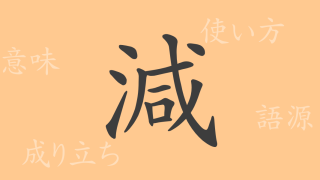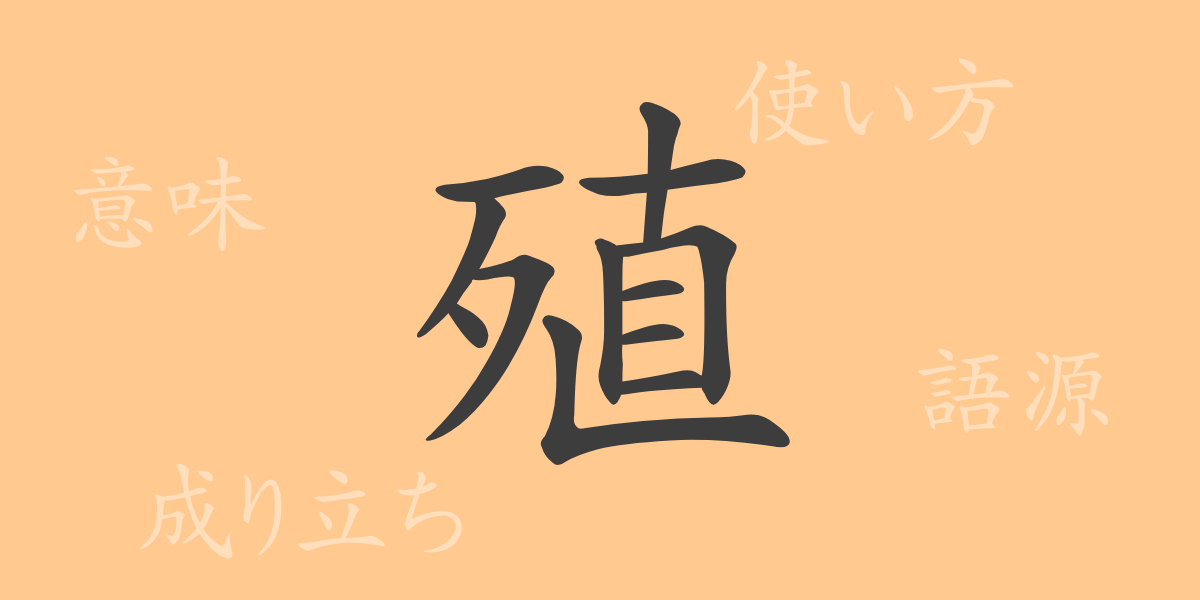The richness of Japanese expression is significantly attributed to its Kanji characters, each possessing unique history and meanings. This article focuses on ‘殖’ (ショク), a Kanji frequently encountered in everyday life and specialized contexts, exploring its complex background and influence on our language.
Origins of 殖 (ショク)
The Kanji ‘殖’ originates from ancient China, composed of the radical ‘歹’ (しがまえ) which means death, and ‘直’ (ちょく), meaning straight. Although it’s not intuitively linked to meanings like ‘breeding’ or ‘proliferation,’ historical developments have led ‘殖’ to signify ‘to increase’ or ‘to prosper.’
Meaning and Usage of 殖
‘殖’ encompasses meanings such as ‘to multiply,’ ‘to breed,’ and ‘to flourish.’ In economic contexts, it is used in terms like ‘資本殖’ (capital accumulation), and in biology, it refers to the breeding or proliferation of organisms. It is also used in verbs like ‘殖える’ (to increase) and ‘殖やす’ (to propagate).
Readings, Stroke Count, and Radical of 殖
The kanji ‘殖’ has various readings and structural elements:
- Readings: On’yomi (おんよみ) ‘ショク’, Kun’yomi (くんよみ) ‘ふえる’, ‘ふやす’
- Stroke Count: 12 strokes
- Radical: 歹 (しがまえ)
Phrases, Idioms, and Proverbs Involving 殖
‘殖’ is found in many Japanese idioms and phrases, each reflecting its nuanced meanings:
- 資本殖 (しほんしょく): Capital increase, an important concept in economic activities.
- 増殖 (ぞうしょく): An increase in number, used in contexts like biological reproduction or cell proliferation.
- 繁殖力 (はんしょくりょく): The ability of an organism to reproduce, a crucial trait for the survival and spread of species.
Conclusion on 殖
The kanji ‘殖’ spans a wide range of meanings and uses, from economics to biology and everyday conversation, illustrating the richness of expression in the Japanese language. Understanding the history and cultural context behind words allows us to use language more profoundly.

























